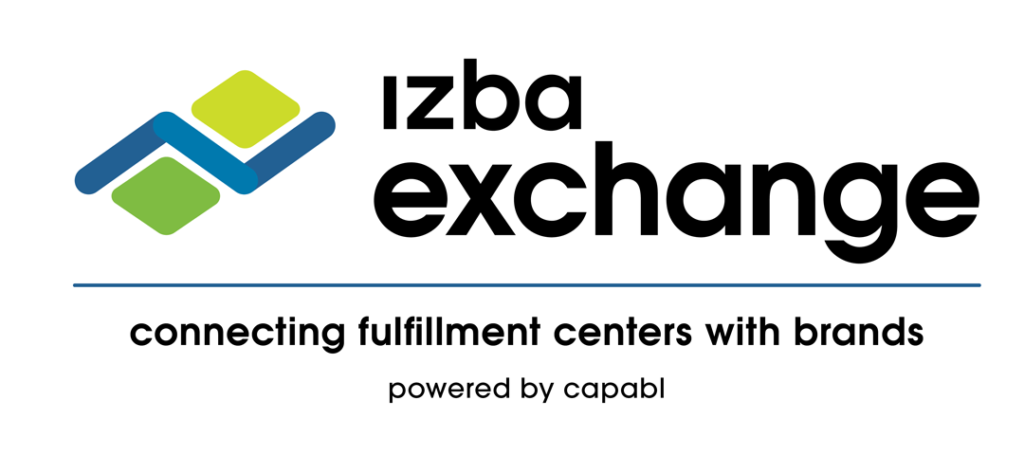

Contracts come in all shapes and sizes – and they don’t have to fill a ream of paper in order to be worthwhile and valuable. Below, we’ve outlined some key elements to keep in mind while drafting manufacturing contracts for your startup.
What makes a contract a contract?
There are three basic elements that all legally binding contracts must contain:
- Offer
- Consideration
- Acceptance
Cooley global law firm partner Tom Connors says, “Conceptually, an offer and acceptance are pretty straightforward, but they are critical, and they form the basis of what contract law requires and refers to as ‘mutual assent.’”
Mutual assent requires the parties’ intent to be bound by the contract and “definiteness of the essential terms of the contract.”
For an offer to be valid, the offering party has to perform some act that gives the other party justification for believing an offer has been made. Then, the other party can accept or reject the offer.
Acceptance of an offer can be achieved by performance or by making a statement to the offering party that indicates acceptance of the offer. An offer becomes a legally enforceable contract once it is accepted.
A typical scenario involves one party offering to provide a product or perform a service, and the other party agreeing to accept such product or service, all in accordance with the terms of the contract.
A simple example is when a manufacturer is willing and offers to manufacture your product, and you accept the offer by agreeing to have the manufacturer produce it for you.
Consideration is the third key requirement for a valid contract. Connors adds: “Consideration refers to the benefit each party receives in exchange for something it gives up in the contract.” Without consideration, there is no contract.
For example, the typical manufacturing contract involves the provision of manufacturing services and the delivery of manufactured items in exchange for money. The consideration in this scenario is the money exchanged.
However, consideration can also be found outside of standard money exchange – for example, a promise to do or not do something.

Beyond offer, acceptance and consideration, which clauses should always be included in a manufacturing agreement?
Term, termination and renewal
Other than offer, consideration and acceptance, your contract will lay out terms, termination and renewal clauses.
The term and termination section lays out how long the initial term of the agreement will last, what happens after that term ends, and the steps either side can take to end or renew the agreement.
Typical manufacturing agreements have a fixed initial term followed by one or more automatic or optional renewal terms.
For example, a manufacturing contract can have an initial term of three years with an automatic one-year renewal term. Termination clauses lay out the different ways that a party can terminate a contract prior to its expiration date.
Generally speaking, there are two buckets of termination rights up for negotiation: termination upon the occurrence of a certain event (for example, the other party’s breach or its entry into bankruptcy) and termination for convenience (which means a party can terminate for any or no reason).
Contracts also will prescribe how and when a party must communicate the termination notice to the other side, how the parties will wind down the relationship and what, if anything, the parties will be obligated to do once the contract expires or is terminated.
It may be advantageous for a startup to have a shorter initial term, renewal terms and/or termination windows.
On the flip side, Connors mentions that “a short term or a termination for convenience right may not be to your advantage if you’ll need a long period of time to locate and negotiate a contract with an alternative supplier or manufacturer, or if the counterparty is an important customer and source of revenue.”
Therefore, it’s important to understand the needs of your business vis-a-vis the products or services the counterparty will be providing to you.
Payment terms, price and Incoterms
This section is what most people think of as the core tenets of a manufacturing contract, but it’s surprising how many contracts are signed without clearly defined pricing.
In addition to agreeing on the price you or the other party has to pay, the contract should make clear what that price covers – and if, how and when that price may be modified.
Given marketplace uncertainties, such as high inflation and raw materials costs, it’s not uncommon for a manufacturer to build in a variable component to the price for its goods. For example, the manufacturer may require an annual price increase or a more frequent right to raise its price if its costs increase.
Many manufacturing agreements include (or should include) Incoterms, which are a set of 11 internationally recognized rules that define the responsibilities of sellers and buyers.
Incoterms specify who is responsible for paying for and managing:
- Shipment
- Insurance
- Shipping Documentation
- Export Licenses and Customs Clearances (if applicable), etc.
Incoterms also clarify which party bears the risk of loss of the shipment, and at which point in the shipping process that risk is transferred from the seller to the buyer.
On one end of the spectrum, the Ex Works (EXW) Incoterm means that the seller simply has to make the goods available at its factory, and the buyer is responsible for all transportation costs and bears the risk of transporting the goods to its location.
On the other end of the spectrum, the Delivered Duty Paid (DDP) Incoterm means that the seller will be responsible for delivering the goods to the buyer’s location, as well as paying all costs and bearing the risk of loss to get those goods to that location.
Connors says, “Using an Incoterm in a contract for a sale of goods transaction will often avoid potentially costly misunderstandings and mistakes, like failing to specify in the contract which party is responsible for which shipping costs and when the loss of or damage to the goods becomes the buyer’s risk to bear.”
Aaron Alpeter, founder of Izba, adds: “We sometimes recommend a startup use the Ex Works (EXW) Incoterm, as it gives a company the most control over the carrier and the costs, but you need to make sure that you’re able to adequately handle international logistics.”
Payment terms (i.e., when and how money is to be paid) are often an overlooked but important part of an agreement.
For example, are you or the counterparty obligated to pay any or all of the price upfront when an order is accepted, or will money not be owed until the goods have been delivered and inspected?
And once an invoice is issued, how long do you or the counterparty have until the money is due? Alpeter says, “As a customer, I would usually take a higher price in exchange for net 90 payment terms, as that allows you to leverage your suppliers’ balance sheet to grow your business.”
Indemnity, limitation of liability and insurance
These clauses are critical and help to ring-fence your business’s exposure with respect to liability arising under the contract.
An indemnity from the counterparty can help protect you from third-party claims if the counterparty in your contract does something to cause the claim.
The indemnity should obligate the counterparty to defend you and reimburse you for damages and expenses you incur as a result of such third-party claims.
A limitation of liability clause, as its name implies, generally disclaims liability for certain types of indirect damages and limits a party’s liability for direct damages under the contract.
This clause is very important because you don’t want to put your company at risk should something go wrong under one commercial contract.
Connors adds: “These clauses are often negotiated pretty heavily between the parties, and they’re important to get right, not only with respect to limiting a company’s liability under the contract but also because future investors and acquirers will review your contracts in diligence.
If you have uncapped liability under an important contract, it will likely be a ‘red flag’ to those investors and acquirers.”
Requiring the counterparty to maintain adequate types and levels of insurance is another element to strongly consider for manufacturing contracts.
If your manufacturer provides you with products that don’t meet their specifications or cause harm to your customers, and the manufacturer is underinsured, the chances of recovering damages from the manufacturer could be slim.
Therefore, it’s important to include an insurance requirement clause and to spend a bit of time figuring out scenarios where the counterparty could cause liability for you.
The importance of these clauses may be difficult for a new startup to fully appreciate, and they typically include legal jargon that may be tricky to comprehend.
In addition, many initial drafts of manufacturing agreements from manufacturers can be overwhelmingly in their favor, with very few obligations for them or protections for you.
You should always have these sections reviewed by a lawyer to make sure that you understand your company’s risk under the contract, and can appropriately negotiate for a more favorable and “market” approach to these clauses.
Applicable law, arbitration and confidentiality
These clauses help round out the mechanics of the relationship from a legal standpoint. The applicable law and venue provision will determine the state’s or country’s laws, rules and procedures that will be applied should either party wish to bring a lawsuit against the other.
Whereas, a mandatory arbitration clause is commonly used as a way to speed up dispute resolution, keep disputes private and potentially reduce each party’s costs regarding the dispute.
Confidentiality obligations are very important and help protect your valuable confidential information from being used or disclosed outside of the scope of the relationship.
The physical location, or “venue,” where you handle a dispute can matter quite a bit if things go wrong.
If you signed a contract with a venue requirement in a foreign country, you would have to travel to and litigate your case in that foreign country, with a judge from that country, and accept the outcome per the local laws of that country.
Beyond practical matters of language, travel and cost, companies can be squeamish if the country in question has a dubious track record with the rule of law.
By including a venue selection clause in your contract, you can obligate all disputes to be brought to an agreed-upon location.
In the event you do wind up in court in connection with an agreement, choice of venue and applicable law are important factors to consider.
As most startups are incorporated in Delaware due to its business-friendly legal environment and well-settled corporate laws, a common neutral venue and governing law in contracts is Delaware.

What are some additional levers that can be included in my contract?
Exclusivity, volume guarantees and OTIF
There are three bargaining chips commonly used in manufacturing contracts to dramatically alter the dynamics of the relationship.
Each of these 3 elements is an attempt at driving certainty in the relationship. Given their potential impact, these meaty clauses are usually accompanied by heavy negotiation.
Exclusivity can cut either way. Exclusivity in your favor could prohibit the factory you engage from manufacturing the same or similar products for your competitors.
On the other hand, exclusivity in favor of the manufacturing counterparty could commit your startup to single sourcing your products.
Exclusivity provisions are often nuanced, and sometimes contain geographic restrictions and/or minimum qualifications or volumes for the exclusivity to be triggered.
In an environment where there are few qualified suppliers, getting a legal concession to prevent current and future competitors from using the expertise the manufacturer gains from working with you can be a significant moat for your startup to build.
Volume guarantees effectively translate into revenue guarantees for a factory and are highly sought after.
A volume guarantee can have serious impacts on your business and should only be awarded after careful consideration, but it can be necessary to get a much bigger company to work with you or to help justify a supplier’s investment in new equipment to produce your product.
Paired with a long-term contract, a volume guarantee can turn into a breakup fee if you choose to exit the contract early.
On-time in full, or OTIF, metrics put teeth into commitments that a factory makes to its clients. A typical OTIF clause may specify a certain percentage of refund for each day that a PO delivery is late.
As is the case with volume guarantees, factories do not want to give OTIF guarantees easily, but there are usually enough exclusions that can be offered to at least get some minimum OTIF guarantee in the contract.
Again, the intent here isn’t to nickel and dime the factory, but to put strong incentives in place for the manufacturer to deliver products in the quantity, quality and time frame you expect.
Intellectual property and product enhancements
These clauses help clarify who owns or benefits from any innovations or designs as a result of the relationship and codify boundaries of ownership going into the relationship to head off future disputes.
Intellectual property usually refers to inventions, drawings, designs, formulations, know-how, or processes that could be patentable or otherwise represent a trade secret.
Intellectual property is not a tangible thing, but it can be thought of as the “secret sauce” required to make the thing.
For example, a drop of Coca-Cola is not intellectual property, the formula to make the drink is. A party’s intellectual property often gives that party a competitive advantage in the marketplace.
Thus, intellectual property language in contracts can be hotly contested – and it’s not uncommon to see extremely one-sided provisions in initial drafts of manufacturing agreements.
Usually, this comes in the form of saying that a factory owns or gets a royalty-free right to any intellectual property that is jointly developed or results from the factory’s performance of its obligations under the contract.
Product enhancements have to do with who benefits from any cost-down measures that are taken over the life of the agreement.
If the factory is able to find a cheaper provider of a component, shouldn’t you expect the manufacturer to pass along those savings? If you design something that is easier to manufacture, shouldn’t you expect to share in those savings?
It’s important to sufficiently motivate your factory to look for ways to reduce costs and improve efficiency, and the best contracts typically spell out some sort of savings share.
Quality standards, certifications and warranty requirements
Getting a factory to agree to produce something for you is almost as important as defining what qualifies as an acceptable product.
In many cases, the defined quality standards are so robust that they reference a separate amendment or quality manual that will govern the quality expectations and requirements.
Producing a simple plastic cup could have an infinite number of critical and non-critical dimensions, including the color, number of holes or deformities, texture, dimensions, smell, material, or finish of the plastic.
Obviously, the more stringent the quality standards and required testing, the more expensive that product is likely to be to produce.
In some industries, governmental bodies such as the US Food and Drug Administration or Federal Communications Commission and intergovernmental standards such as ISO, UCC or Intertek will dictate what is considered acceptable.
Keep in mind that these standards usually define the least common denominator, and your internal quality standards may very well exceed them.
These standards and certifications usually require lengthy audits and large compliance requirements, and for this reason, many contracts will specify certifications that the factory has to carry.
Some overseas medical device manufacturers seek out and maintain FDA certification without any intention of selling inside the US because they recognize that having that certification will validate their abilities for other clients.
To monitor the quality of the products, you’ll want to make sure your contract provides you with adequate access and audit rights, whether that means access to a physical facility or access to data and records.
Usually, maintaining some sort of certification or standard is a cut-and-dry process that’s fleshed out in the earliest stages of an RFP. By far, the biggest point of negotiation is around the warranty and the obligations associated with the nonconformance.
Common points of negotiation focus on the length of the warranty, who is responsible for determining the root cause of an issue, who gets to decide if defective products will be repaired, replaced, or refunded, and who covers the transportation of it all.
PPV, tooling ownership and maintenance
These clauses all directly or indirectly influence the total cost that is paid to the factory. A purchase price variance (PPV) is triggered anytime the price paid is different from what’s on the contract.
This can be due to changes in commodity or component prices and availability, overtime incurred, or unforeseen sortation or rework.
The best contracts clearly call out the requirements the factory has to meet before any PPV will be approved and put guardrails on how much each side will absorb based on a threshold. Usually, these thresholds are paired with how generous you are with the product enhancements, as mentioned above.
Many manufacturing environments will require some sort of specialized tooling that is unique to your product.
There are a few considerations a startup needs to make when it comes to handling these unique molds, print plates, patterns, etc. A good example would be the mold that makes the shape and texture of an Oreo cookie.
Both sides may agree that Oreo should be the owner of this tool. Ownership of the tool means that Oreo can prevent the factory from using the tool on any other cookies it makes in that factory – and it also means that Oreo could move the tool to any other location of its choosing.*
In that manufacturing agreement, while Oreo owns the tool, it wouldn’t be uncommon for the factory to be required to regularly clean, inspect and maintain that tool. The biggest variable that you may see comes in how the tools are paid for.
Oreo could decide to outlay cash all at once to purchase the tools, or have the factory outlay the cash and charge a little bit more per cookie over the life of the tool.
*While separate from ownership of the tool, as an aside, Oreo would also want to own the intellectual property rights in the design. This would allow Oreo to prevent the factory, and anyone else, from putting the design on Oreo’s cookies (or a similar cookie from a third party) without Oreo’s permission.
Still got questions?
Contact us at Izba and we’ll help your startup negotiate contracts that work in your favor. Partner with us and let’s share the knowledge and efforts to scale and grow your business together.







